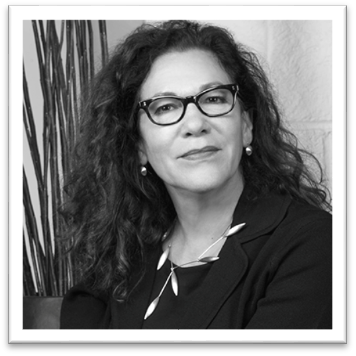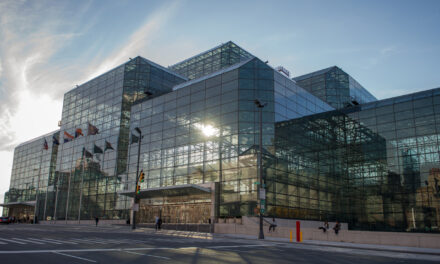The American Society of Landscape Architects (ASLA) announced yesterday that it has elevated 22 members as ASLA Fellows for their exceptional contributions to the landscape architecture profession and society at large. Election to the ASLA Council of Fellows is among the highest honors the ASLA bestows on members and is based on their works, leadership, management, knowledge, and service.
ASLA will formally recognize its 2019 Fellows at the ASLA 2019 Conference on Landscape Architecture, November 15-18, San Diego. Additional information about the 2019 Class of Fellows, as well as previous ASLA Fellows, is available on the ASLA Council of Fellows webpage.
2019 ASLA Fellows
 Diane Jones Allen, ASLA
Diane Jones Allen, ASLA
DesignJones, LLC and University of Texas, Arlington
Diane Jones Allen received her nomination in Service from the ASLA Council of Fellows Executive Committee. From the beginning of a career that has spanned over 30 years, service to others has been a guiding force. Shortly after graduate school at the University of California Berkeley, where she received a master’s degree in landscape architecture, Diane became a community planner for the the Maryland-National Capital Park and Planning Commission, focusing on community engagement and master plan development for minority communities. She manifests her commitment to service through her current professional practice, DesignJones, LLC, where she works pro bono with communities in New Orleans still recovering from Katrina. Through her academic position at the University of Texas Arlington, she worked with communities in North Texas and provided service opportunities to the next generation of landscape architects. Diane serves on the Board of Directors for the Landscape Architecture Foundation and its Diversity and Climate Change Task Forces. Her voice at the Summit on Landscape Architecture and the Future was a wake-up call for a greater understanding of these issues and the links between them.
Michael L. Boland, ASLA
Presidio Trust, San Francisco
Michael Boland received his nomination in Leadership/Management from the Northern California Chapter. Applying his ideals at San Francisco’s Presidio, a singular place of national significance, he has led and managed the transformation of this former army post into a beloved public space. For nearly three decades, he has inspired this transformation in collaboration with the National Park Service, the Presidio Trust, and the Golden Gate National Park Conservancy. To establish the Presidio as a model of sustainable park design and management, he worked closely with an array of world-class professionals to create a wide range of facilities and cultural, recreational, educational, and service experiences that connect diverse audiences to the Presidio’s unique history and ecology. Simultaneously, he played a critical role in the creation of the National AIDS Memorial Grove in Golden Gate Park by establishing a collaborative design process that actively involved a community reeling from the impact of the AIDS crisis. Michael’s distinguished and inspirational professional engagement exemplifies the best of landscape architecture.
Michael Boucher, ASLA
Michael Boucher Landscape Architecture, Freeport, Maine
Michael Boucher received his nomination in Works from the Boston Chapter. Michael’s craft is characterized by an ability to skillfully apply clear principles to a wide range of biomes, project scales, and architectural approaches. He strives for all his designs to be not only durable, but to endure in the memories of those who experience them. In collaboration with Canal 5 Studio, he led the extensive redesign and construction of Canal Plaza, which brought new life to an underused and once dreary space in downtown Portland, Maine. Actively engaged in the community, including the Portland Society for Architecture, the Maine Audubon Society, and the Wolfe’s Neck Center for Agriculture and the Environment, he has also taught in the MIT Department of Architecture as a studio instructor and served as a “reader” supporting thesis students and their advisors. Michael’s simple and restrained designs contribute to the greater conversation about the importance of creating timeless, lasting designs that advance the aspirations of our evolving profession.
 Hallie Boyce, ASLA
Hallie Boyce, ASLA
OLIN, Philadelphia
Hallie Boyce received her nomination in Works from the Pennsylvania-Delaware Chapter. During 25 years of practice, Hallie has dedicated herself to creating landscapes that transform the lives of individuals and entire communities, while encouraging the next generation to become stewards of the environment. One of her earliest projects in Charlottesville, Virginia, was the revitalization of Booker T. Washington Park, historically the city’s first public park reserved for African-Americans. This project helped Hallie develop an approach to design that fosters deep collaboration with clients, communities, and stakeholders. Since that first project, she has focused her skills on strengthening neighborhoods, celebrating culture, and reflecting on a community’s past while providing a fresh vision for its future. Hallie reminds us of our responsibility as landscape architects not just to design beautiful, resilient places, but to serve the greater public good by infusing every landscape with a community’s highest collective aspirations.
Mark Brands, ASLA
Site Workshop, Seattle
Mark Brands received his nomination in Works from the Washington Chapter. Mark has built a professional practice over three decades that has been focused on the enrichment of the public realm. Over a wide range of projects—from the largest developments in the Pacific Northwest to small, volunteer-led improvement efforts—he brings a spirit of collaboration that emphasizes an inclusive approach centered on design equity. The result is built work that reflects the character, values, and needs of the local community. Mark’s deep commitment to social and environmental responsibility is reflected in his encouragement of multi-modal transportation with trails and bicycle infrastructure; the design of beautiful spaces for people to socialize, relax, and collaborate; and a commitment to immersing people in nature-rich environments. His multi-faceted approach to sustainability is evident in community planning projects, such as his award-winning work with the Commonwealth Conservancy in Santa Fe to develop the Village at Galisteo Basin Preserve. Featured as an exhibit at the National Building Museum, this project celebrates the cultural heritage of the region while emphasizing the use of sustainable materials and construction. Mark’s work in equitable design reinforces landscape architecture’s role in raising community voices and expressing them in well-crafted work.
Kevin W. Burke, ASLA
Atlanta BeltLine Inc., Georgia
Kevin Burke received his nomination in Leadership/Management from the Georgia Chapter. In charge of overseeing the design and construction of the BeltLine project’s parks, most of the multi-use trails, and streetscapes, Kevin has clearly demonstrated the full breadth of landscape architecture’s role in shaping communities. The award-winning park and the $600 million increase in adjacent private development has become a national model for a successful urban infill project. At the ribbon-cutting, a local community leader looked around and said: “This is so much more than we were expecting!” First in Boston on the Big Dig project, then when he moved to Atlanta, Kevin’s career has been underpinned by a strong belief in his fiduciary duty to put the public’s interests first. An active chapter member since moving to Georgia, he has been an invaluable voice in raising the chapter’s advocacy profile in Atlanta and the state. His charisma, energy, and “no nonsense” mentality has made a dramatic impact on how a new generation of landscape architects approach the profession.
Glen Dake, ASLA
DakeLuna Consultants, Los Angeles
Glen Dake received his nomination in Service from the Southern California Chapter. Glen serves on the board of the nation’s largest water utility where he fights for projects and programs that respect natural systems and show demonstrable improvements to watershed health and wildlife diversity. A committed community volunteer, Glen joined with other activists in 1992 to found the non-profit Los Angeles Community Garden Council, which uses community gardens to improve neighborhood social cohesion. This effort increased the number of gardens in Los Angeles County from 50 in 1993 to 125 in 2018, building resilience and improving the health of families living around the gardens. In 2013, Glen joined the board of the California League of Conservation Voters. Elected president in 2018, he worked to evaluate and endorse candidates for the California legislature who advocate strong environmental agendas and support legislation that improves the state’s environmental performance. Recognized as an effective leader among landscape architects and allied professionals, Glen has provided new opportunities for landscape architects to share in public-policy decision-making.
 Lisa Delplace, ASLA
Lisa Delplace, ASLA
OEHME, van SWEDEN, Washington, DC
Lisa Delplace received her nomination in Works from the Potomac Chapter. Lisa’s experience as a Peace Corps volunteer in Kenya required rapid adaptation to new and distinct surroundings, which sharpened her awareness of cultural, social, and environmental influences on people and the planet. This experience served her well as lead landscape architect on complex projects in geopolitically sensitive locations such as Kabul, Afghanistan, and Katmandu, Nepal. The learned lessons Lisa brought to the firm of OEHME, van SWEDEN expanded the firm’s ecological approach while placing a new emphasis on interdisciplinary collaboration between designers and scientists in such projects as the Great Basin Shoreline Restoration at the Chicago Botanic Gardens and Tippet Rise Art Center at Fishtail, Montana. In a career that spans four decades, Lisa has demonstrated excellence through a diverse, award-winning body of work at every scale that furthers the connection between people and nature.
Andrew Fox, ASLA
NC State University College of Design, Raleigh
Andrew Fox received his nomination in Knowledge from the North Carolina Chapter. Among his many achievements during his distinguished career, Andrew received the prestigious 2016 Excellence in Teaching Award from the International Council of Educators in Landscape Architecture; established the award-winning NC State Design + Build Studio; and launched his department’s inaugural “Design Week” program, an exemplary educational engagement experience in keeping with the land grant mission of NC State. His scholarship focuses on resilient design for coastal regions and green infrastructure, work that has had significant social outcomes for people in marginalized communities. Under his leadership the Coastal Dynamics Design Lab (DCCL), which he founded, has become a national model for resilient design research and education. Andrew’s achievements, contributions, and impacts on faculty, students, and the profession have significantly enhanced the profession’s collective body of knowledge, capabilities, and influence.
Robert J. Gibbs, ASLA
Gibbs Planning Group, Birmingham, Michigan
Robert J. Gibbs received his nomination in Knowledge from the Michigan Chapter. Described as one of the most influential practitioners negotiating the intersection between environmental design and urban retail, Robert Gibbs’ expertise has been sought by some of the most respected architects, mayors, and developers across the Americas, Europe, and the Pacific Rim. Over a career that spans more than three decades, he has planned or advised over 500 cities, institutions, and new towns. His book Principles of Urban Retail Planning has become a valuable resource for cities and new towns. For over two decades, he has taught at the Harvard Graduate School of Design’s Executive Education Program. Robert has been recognized for his role in pioneering the programming and planning techniques essential to both the creation of competitive downtown shopping districts and the development of market-based, walkable mixed-use town centers. An acknowledged international innovator and leader, Robert has broadened the understanding and respect for landscape architects by the public, real estate industry, and related professionals.
Robert E. Grese, ASLA
Matthaei Botanical Gardens and Nichols Arboretum, University of Michigan, Ann Arbor
Robert Grese received his nomination in Knowledge from the Michigan Chapter. Robert’s research and teaching have emphasized an interest in community, an appreciation of landscape heritage, the restoration of environmental integrity, and the building of connections between people and landscape. These themes are also emphasized in his leadership at Matthaei Botanical Gardens and Nichols Arboretum, transforming the properties for both university and community enjoyment. An advocate for ecological design, emphasizing regionally native flora, he has also researched themes in environmental stewardship, building a deeper understanding of the benefits gained from participating in volunteer stewardship programs and the motivations that keep volunteers engaged. His book Jens Jensen: Maker of Natural Parks and Gardens reawakened many to Jensen’s advocacy for a regional approach to landscape design. Throughout his 34 years in academia, Robert has contributed broadly to a deeper understanding of ecological design and landscape history through scholarship and teaching, as well as through his leadership and community service activities.
 Robert Hewitt, ASLA
Robert Hewitt, ASLA
Clemson University, South Carolina
Robert Hewitt received his nomination in Knowledge from the Northern California Chapter. During a period of more than two decades as a Professor of Landscape Architecture at Clemson University and the Pennsylvania State University, Robert has gained recognition for an impressive range of accomplishments, receiving 30 significant university and state, regional, national, and international awards of distinction for research, scholarship, creative works, teaching, and publication. A versatile and passionate educator, he has fostered critical design thinking, guiding thousands of future professionals to a better understanding of the scope of landscape architecture, teaching more than 60 undergraduate, graduate, and doctoral courses at universities on four continents. His research and practice demonstrate the potential of professional and academic practice models based on the notion of a “designer-scholar.” As a consummate mentor, innovator, teacher, and practitioner, Robert has encouraged learning through leadership, advising students throughout their education and as they transition to emerging professionals.
David D. Jung, ASLA
AECOM, Hong Kong
David Jung received his nomination in Works from the ASLA Council of Fellows Executive Committee. David’s body of work is best understood as an expression of his belief that thoughtful design is social. He views landscape as a unifying agent, integrating people and place into the fabric and infrastructure of our cities. Two of his many transformative award-winning projects illustrate this commitment. Hong Kong’s Kai Tak Cruise Terminal and the West Kowloon Terminus High Speed Rail holistically integrate landscape into the city’s urban infrastructure to address Hong Kong’s aspirations for a robust, green public realm. He also serves the profession, working with the region’s other practitioners and academics, connecting through teaching and lecturing on the significance of design and landscape architecture in the development of urban communities. David passionately believes the legacy of landscape architecture is derived from its civic and social commitment and its responsibility to make the world and our living environment a better place.
Mike E. Lanaux, Jr., ASLA
CARBO Landscape Architecture, Alexandria, Louisiana
Mike Lanaux received his nomination in Works from the Louisiana Chapter. Early in his career, Mike had the opportunity to participate in a work-study program at the Life Planning Office in Tokyo, Japan. His exposure to Asian sensibilities, reflected in ancient temples, landscapes, and contemporary Japanese residential work, has led to an appreciation of the power of simplicity in design. His awards include the Shangri La Botanical Garden and Nature Center in Orange, Texas; the Indian Springs School/Landscape Laboratories in Birmingham, Alabama; and the St. Landry Parish Visitors’ Center in Louisiana. In the latter project, the design is a total integration of building, site, and landscape, each engaging the other through formal relationships and sustainable strategies. The simple palette of materials draws from the regional architectural vocabulary and includes recycled brick and longleaf pine flooring salvaged from local buildings. Stormwater rain gardens frame the exhibition hall entry and serve as a bio-filter collecting roof runoff, cistern overflow, and parking area drainage. His extensive portfolio and experience have significantly deepened the understanding and appreciation of landscape architecture.
Ming-Han Li, ASLA
Michigan State University, East Lansing
Ming-Han Li received his nomination in Knowledge from the Michigan Chapter. A leader in landscape architecture, planning, and transportation, Ming-Han has developed an impressive cross-disciplinary research agenda that transcends professional boundaries. His publications in landscape performance, bioretention stream water management, low impact development, streambank soil bioengineering, and landscape architecture pedagogy have been widely recognized in the United States and internationally. An engaging teacher, he has influenced students in landscape architecture, urban planning, watershed management, and civil engineering, and was named in 2016 one of the 25 “Most Admired Educators” by the Design Futures Council. His prominent role in the Council of Educators in Landscape Architecture (CELA) has created more opportunities for young researchers, junior faculty, and students to publish scholarly works. In a distinguished career that spans over two decades, Ming-Han has advanced the stature of the profession by fostering interdisciplinary knowledge across landscape architecture, urban planning, and engineering.
 Brice Maryman, ASLA
Brice Maryman, ASLA
MIG/SvR, Seattle
Brice Maryman received his nomination in Service from the Washington Chapter. Brice began his volunteer service to the landscape architecture community in 2003 as the volunteer co-director of Open Space Seattle 2100. Brice carried the imperatives of Open Space Seattle forward in the work of a fledgling non-profit, Great City. As chair of the Green Infrastructure Committee, he was instrumental in forming a diverse coalition to pressure the Seattle City Council to renew the Parks for All Levy. To better respond to increased homelessness in the city’s streets, parks and other spaces–driven ironically by Seattle’s economic success–Brice applied for and received the 2017-2018 Fellowship for Innovation and Leadership from the Landscape Architecture Foundation. Through his HomeLandLab project and podcast, he explored the complexity of homelessness, collecting diverse perspectives to develop empathetic responses that designers can employ when working in the public realm. Brice’s volunteer commitments reveal his unwavering commitment to inclusive urban environments that support human and ecological health. Over his career, he has led diverse partners to fortify both the physical and public policy environments that allow landscape architects and allied professionals to better confront the challenges of the twenty-first century.
Mimi McKay, ASLA
McKay Landscape Architects, Chicago
Mimi McKay received her nomination in Works from the Illinois Chapter. With a passion for social justice, Mimi applies the same expertise honed on residential projects to her work in the supportive and affordable housing sectors. On over 45 projects, she has transformed socially and environmentally challenging sites into productive landscapes, places of food production, sources of unique programming, and catalysts for social interaction and community building, while instilling a sense of pride in their residents. On projects such as Chicago’s City Gardens, Harvest Commons, Buffet Place, and Detroit’s Rosa Parks Apartments, she designed landscapes that are infused with respect for the people who use them. Her commitment to quality affordable housing extends to volunteer work for Habitat for Humanity, where she has been a board member, leveraged relationships with suppliers to obtain materials, and provided pro bono landscape designs. Her award-winning work sets a standard of social consciousness for landscape architects and designers nationwide.
Allyson Mendenhall, ASLA
Design Workshop, Denver
Allyson Mendenhall received her nomination in Leadership/Management from the Colorado Chapter. A LEED-certified landscape architect with over 20 years of professional practice experience, Allyson directs the firm’s content, project, and quality management standards, as well as research and the landscape performance process. Many of the programs she leads serve as national models for transforming professional practice. She shares her knowledge regularly with other design practitioners through lectures and speaker panels, and is widely sought after both nationally and locally for board leadership roles. As a board member of the Landscape Architecture Foundation, her leadership in the organization’s Research Committee helped to define the Landscape Performance Series and set a new standard for the profession. In her community, Allyson serves on the Advisory Board of the University of Colorado and is a mayor-appointed Trustee of Denver Botanic Gardens, where she helps choose landscape architects to design high-profile capital improvement projects. Her innovative landscape architecture practice has long served as an example and inspiration for the profession.
Kate Orff, ASLA
SCAPE and Columbia University, New York City
Kate Orff received her nomination in Leadership/Management from the New York Chapter. Known for leading complex, creative, and collaborative work processes that advance broad environmental and social prerogatives, Kate calls attention to the most distinctive natural attributes of a given place, while her community outreach strategies extend the boundaries of landscape architecture. Under her leadership, her firm, SCAPE, has developed designs and framework plans that artfully integrate climate resilience and habitation creation, and connect communities from Boston to San Francisco. An associate professor at Columbia’s Graduate School of Architecture, Planning, and Preservation, she has partnered with scholars across the university and recruited experts from interdisciplinary fields to develop a new curriculum and cutting-edge research that puts climate change at the forefront. Through her groundbreaking work, award-winning projects, publications, and thought-provoking research, Kate is paving the way for new levels of awareness and activism for landscape architecture as a collaborative, solutions-based profession.
Cheri Ruane, ASLA
Weston & Sampson Design, Reading, Massachusetts
Cheri Ruane received her nomination in Leadership/Management from the Boston Chapter. In 2006, Cheri was recruited by Weston & Sampson where she quickly rose from Senior Landscape Architect to Vice President and Practice Leader of Landscape Architecture. As President of the Boston Chapter, she improved the visibility of landscape architecture throughout the Commonwealth and increased the relevance of the chapter among Massachusetts and Maine practitioners. A compelling speaker with an engaging sense of humor, Cheri has been sought after as a spokesperson in academic, professional, and advocacy settings, as well as by the media and volunteer organizations. From PBS’s “Need to Know” to Architectural Digest, Cheri has used these opportunities to ensure that landscape architecture is better understood by the public. During her design work at Lincoln Park in Somerville, Massachusetts, she led her team, the city’s residents, and local students to develop a park to enrich the community, provide much-needed fields and play spaces, and enhance the neighborhood’s sense of place. A dedicated ambassador for the profession, Cheri elevates landscape architecture within her firm, across the industry, and among the public.
Brian Sawyer, ASLA
Sawyer/Berson, New York City
Brian Sawyer received his nomination in Works from the New York Chapter. A noted classicist, Brian has brought together the practices of landscape architecture, architecture, and interior design to create engaging spaces in both modern and traditional styles. Beginning with his mentorship with Robert A.M. Stern, Brian has fostered a seamless connection between landscape and architecture. Notable projects have included the site design and gardens for the Darden School of Business at the University of Virginia, his alma mater, as well as the design and development of the Aspen Highlands Village for Hines Development. To date, his work has earned two national ASLA Honor Awards from the New York Chapter, and four Stanford White Awards from the New York Chapter of the Institute of Classical Architecture and Art. Brian’s unique interdisciplinary approach to design in both modern and traditional vocabularies has increased the visibility of landscape architecture with ever-larger audiences.
Jason G. Wilke, ASLA
Waukesha County Department of Parks & Land Use, Wisconsin
Jason Wilke received his nomination in Leadership/Management from the Wisconsin Chapter. Throughout his 20-year career, Jason has consistently proven his ability to leverage his extensive professional experience and his holistic perspective as a landscape architect to influence the planning, development, public policy, and best management practices of the community he serves. Under his leadership as alderman, Wauwatosa became the first city in Milwaukee County to have a full-time, in house landscape architect in a planning and development capacity. His efforts have produced a more resilient community with a green infrastructure system that benefits the environment and the community’s health, while setting precedents for other local, state, and federal officials to look to for land planning, development projects, and open space preservation. Jason’s career has helped the public better understand the role the profession plays in creating safe and resilient communities in the face of global climate change and social inequality.




